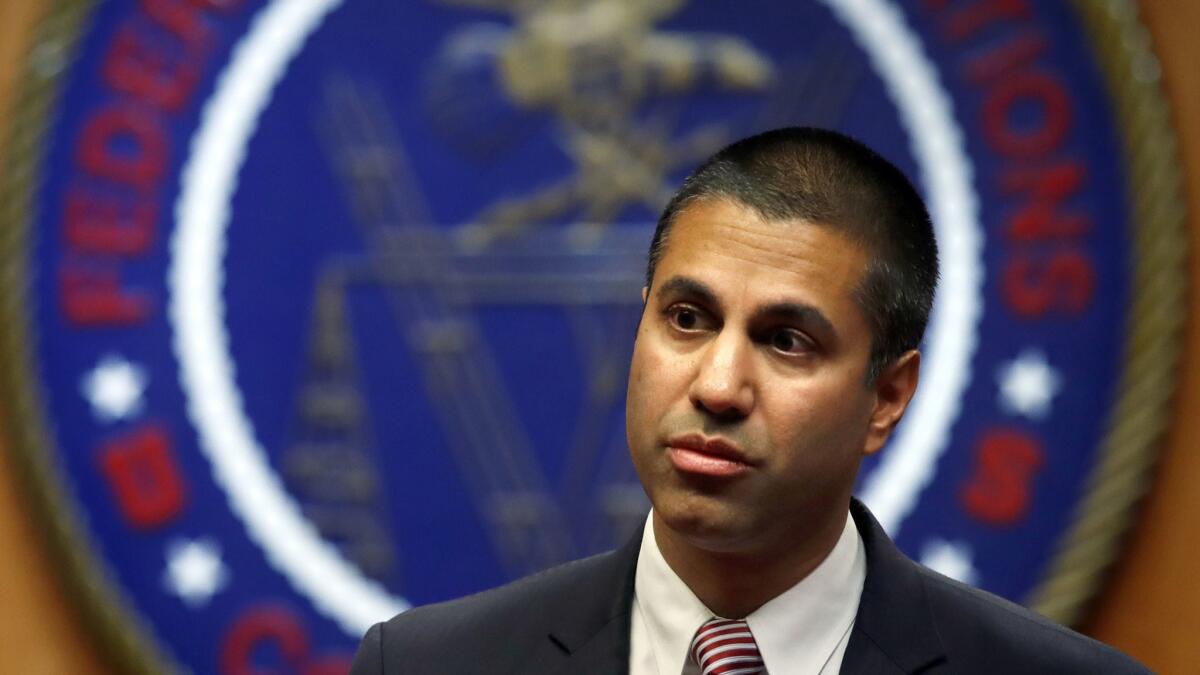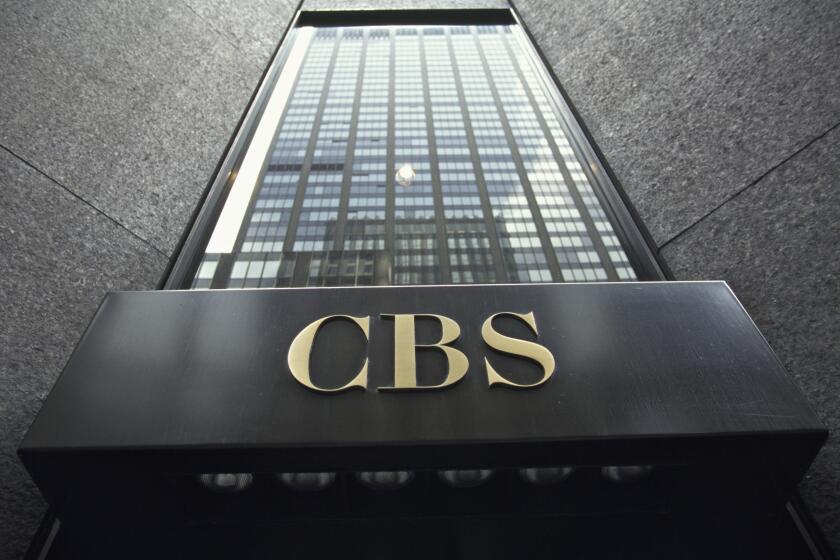Internal probe finds ‘no evidence of impropriety’ by FCC Chairman Ajit Pai toward Sinclair Broadcast Group

- Share via
An internal investigation has found “no evidence” that Ajit Pai, chairman of the Federal Communications Commission, acted inappropriately to assist Sinclair Broadcast Group as the company sought the agency’s approval for a $3.9-billion merger with Tribune Media over the last year.
The FCC inspector general’s report, published Monday, concluded that recent policy initiatives undertaken by Pai that proved helpful to Sinclair were not the result of pressure from either the conservative media giant or the Trump administration. The findings support Pai’s insistence that his actions reflect long-held policy convictions, rather than a desire to play favorites.
“We found no evidence, nor even the suggestion, of impropriety, unscrupulous behavior, favoritism towards Sinclair, or lack of impartiality related to the proposed Sinclair-Tribune Merger,” the report said.
The inquiry’s conclusion could help insulate Pai from his critics in Congress, who last year called for the investigation after highlighting what they said was a suspicious pattern of FCC behavior. But the report also raised further questions for Pai as it confirmed his communications with some White House staff, and revealed fresh details about other interactions with Trump and those close to him.
On July 16, the report said, Pai received a phone call from White House lawyer Donald McGahn, who wanted to know the status of the FCC’s Sinclair merger review. Asked this month about contacts between the Trump administration and the FCC concerning the merger, Pai told reporters that the White House had never “contacted us to express a view” about the deal.
Prior to his appointment as FCC chairman, Pai met with Trump at Trump Tower. While the meeting was publicized at the time, the report newly revealed that Trump “was interested in the legal framework” of AT&T’s proposed merger with Time Warner, a deal Trump had criticized publicly. Months later the Justice Department would go on to sue to block the deal, failing to mount a successful court challenge. The result is being appealed.
Then, on May 5, 2017, Pai received a cryptic email from Jared Kushner, Trump’s son-in-law, according to the investigation. The email contained the message “Just tried you — had a quick thing to run by you.” The report added that Pai received a phone call from a blocked number at 10:03 a.m. Pai did not remember the exchange, according to the inspector general’s report.
The FCC did not immediately respond to a request for comment on the call. But in a statement, Pai said the report’s overall conclusion proved that questions challenging his independence were nothing more than “politically-motivated accusations [and] were entirely baseless.”
FCC commissioners are expected to operate independently of the White House and the rest of the executive branch, despite being political appointees nominated by the president.
“The IG report provides the first detailed responses to Congress’ questions” about Pai’s independence, Rep. Frank Pallone of New Jersey, the top Democrat on the House Energy and Commerce Committee, said in a statement Monday. “Beyond that, questions remain regarding the chairman’s personal communications, which the IG noted were beyond his reach, and his conversations with Jared Kushner” and Don McGahn, he said.
Concerns from Pallone and others surfaced last year when Pai began to revisit a number of decades-old FCC regulations governing the broadcast industry.
Pai successfully rolled back rules that had made it harder for media companies to consolidate in certain markets. He has pledged to modify a rule that currently limits the audience reach of any broadcast company to a maximum of 39% of U.S. households, a regulation designed to ensure a diversity of voices on the airwaves. And Pai reinstated an FCC accounting method, known as the UHF discount, that effectively helps large media companies stay on the right side of the cap more easily.
More to Read
Inside the business of entertainment
The Wide Shot brings you news, analysis and insights on everything from streaming wars to production — and what it all means for the future.
You may occasionally receive promotional content from the Los Angeles Times.










